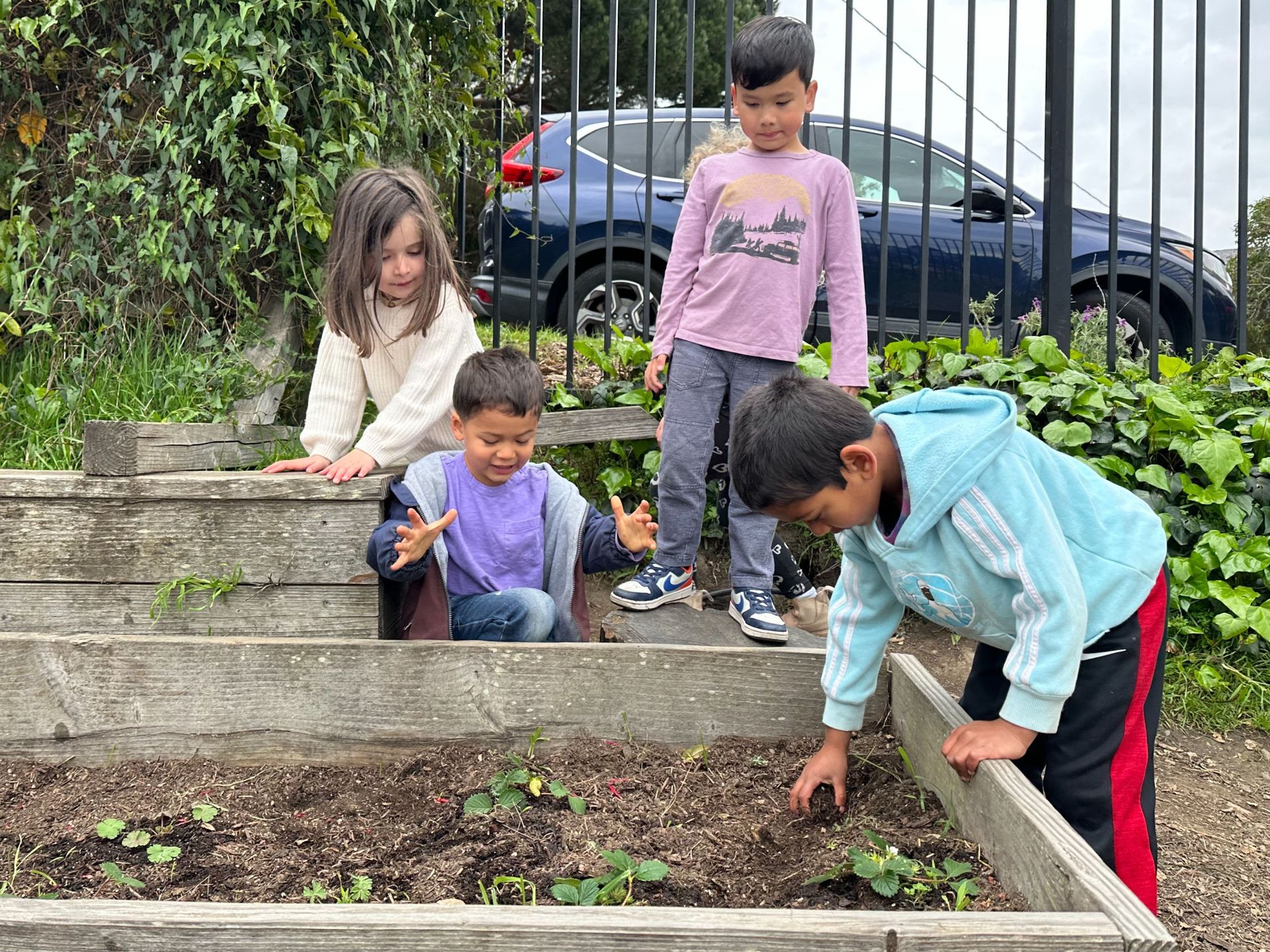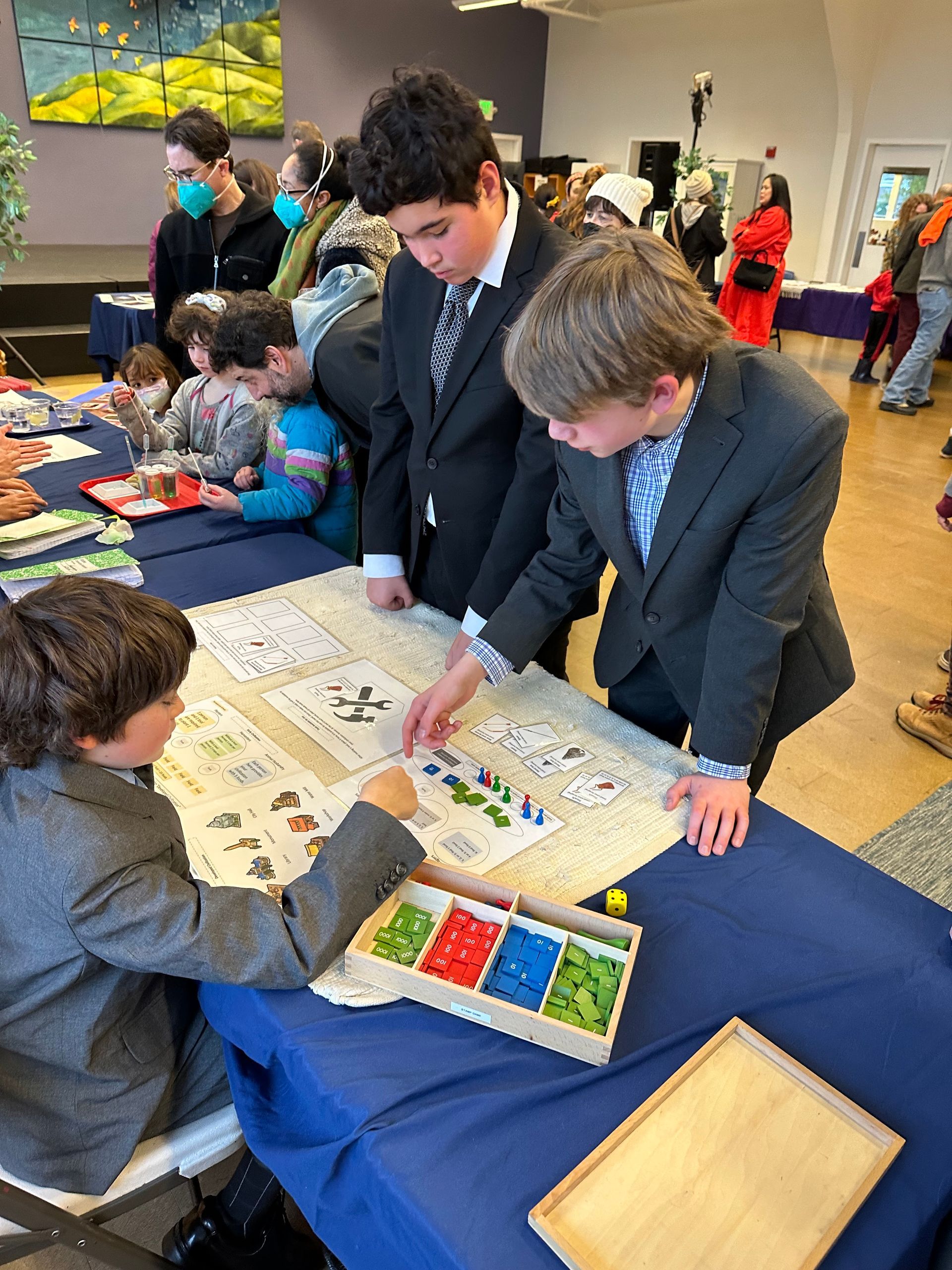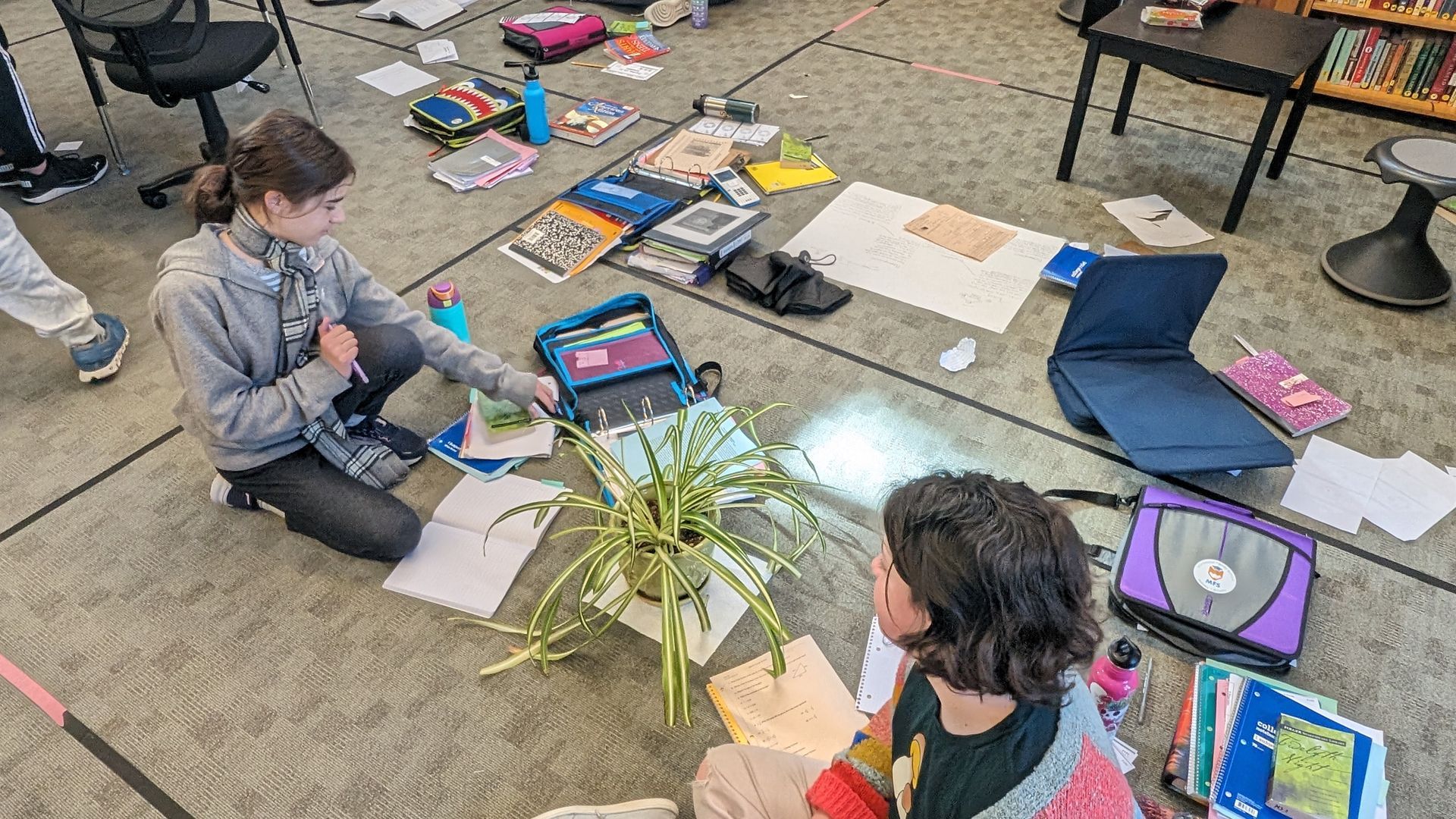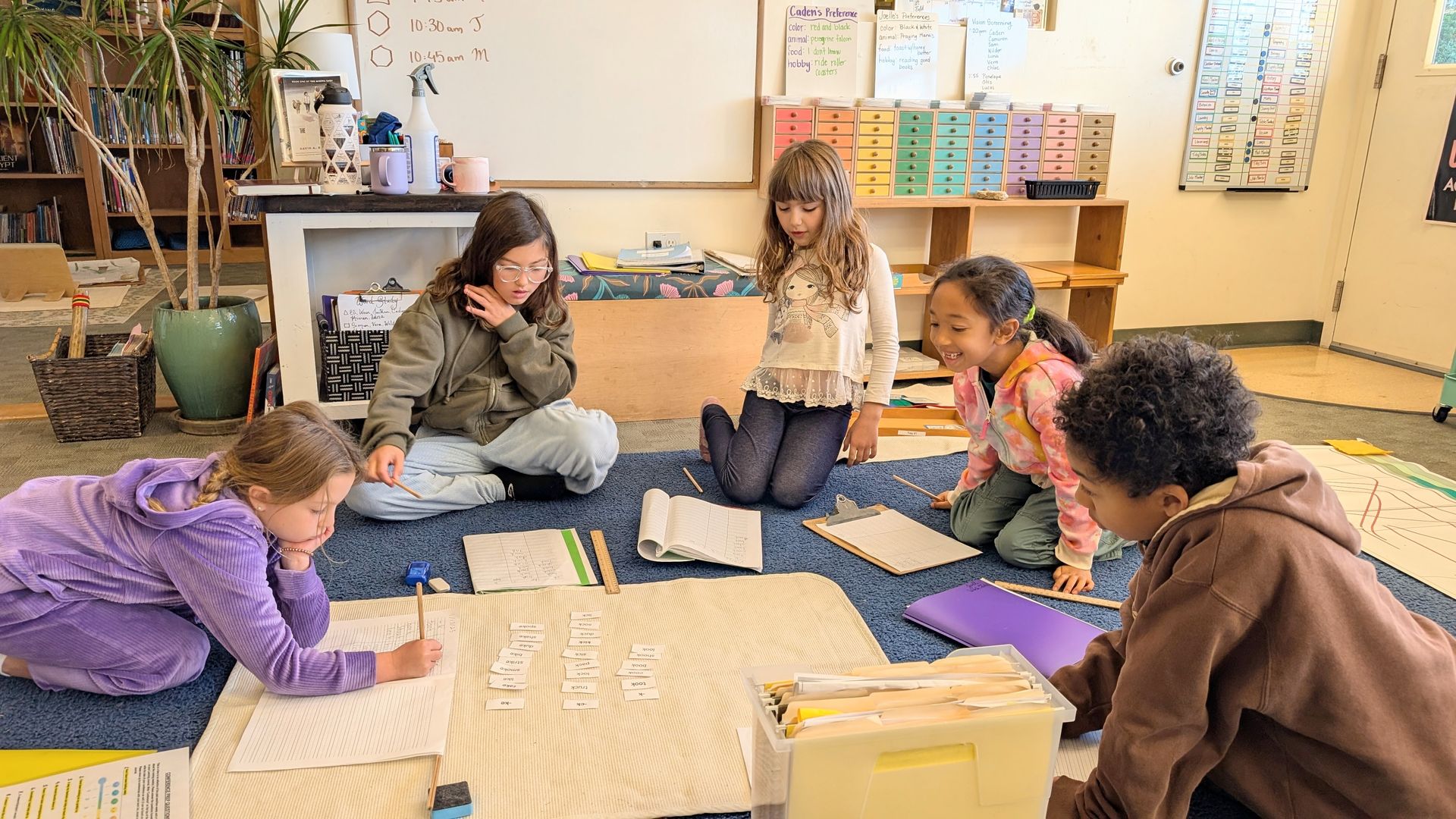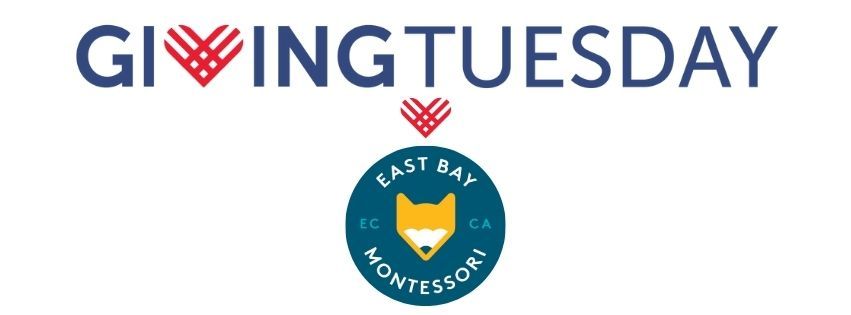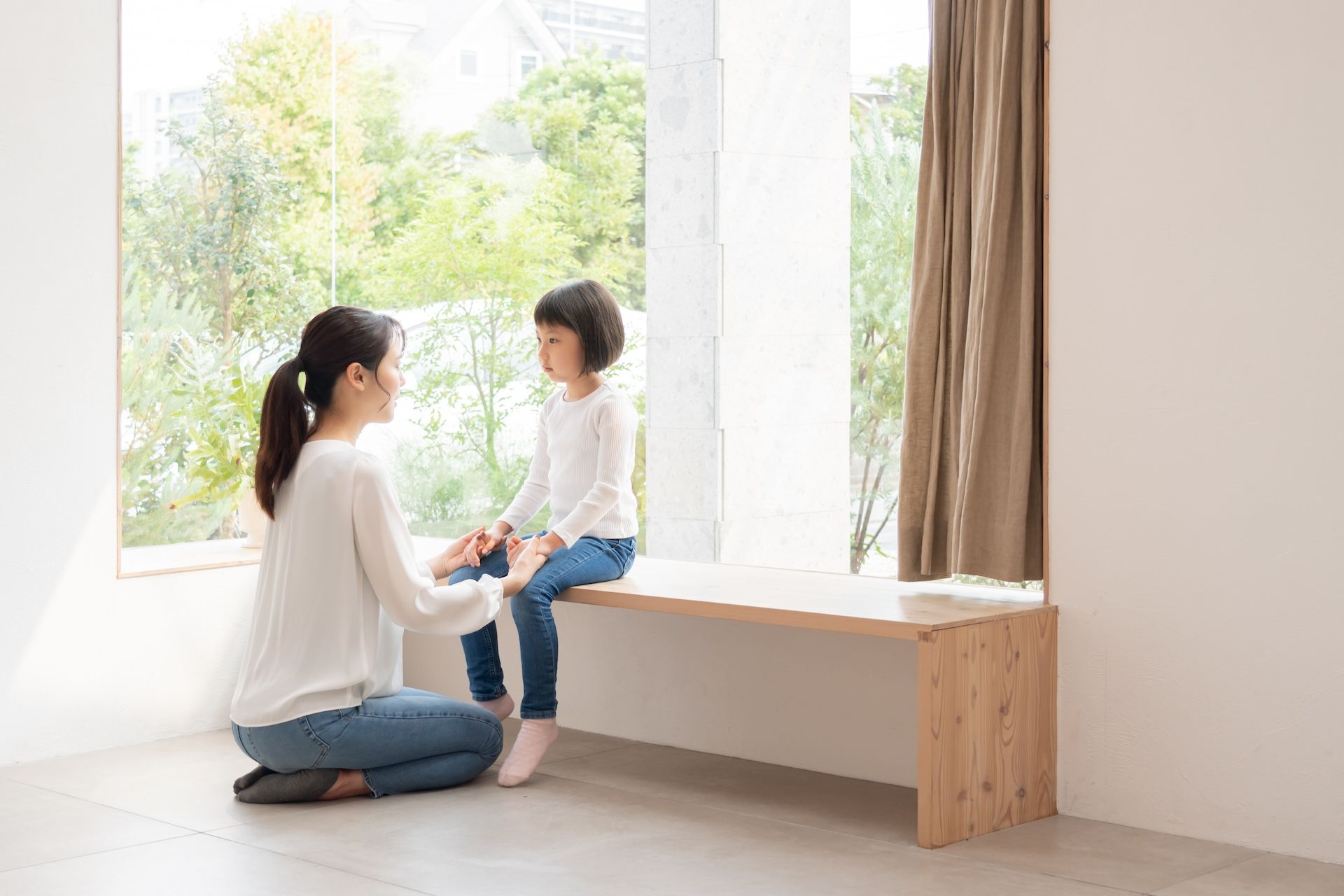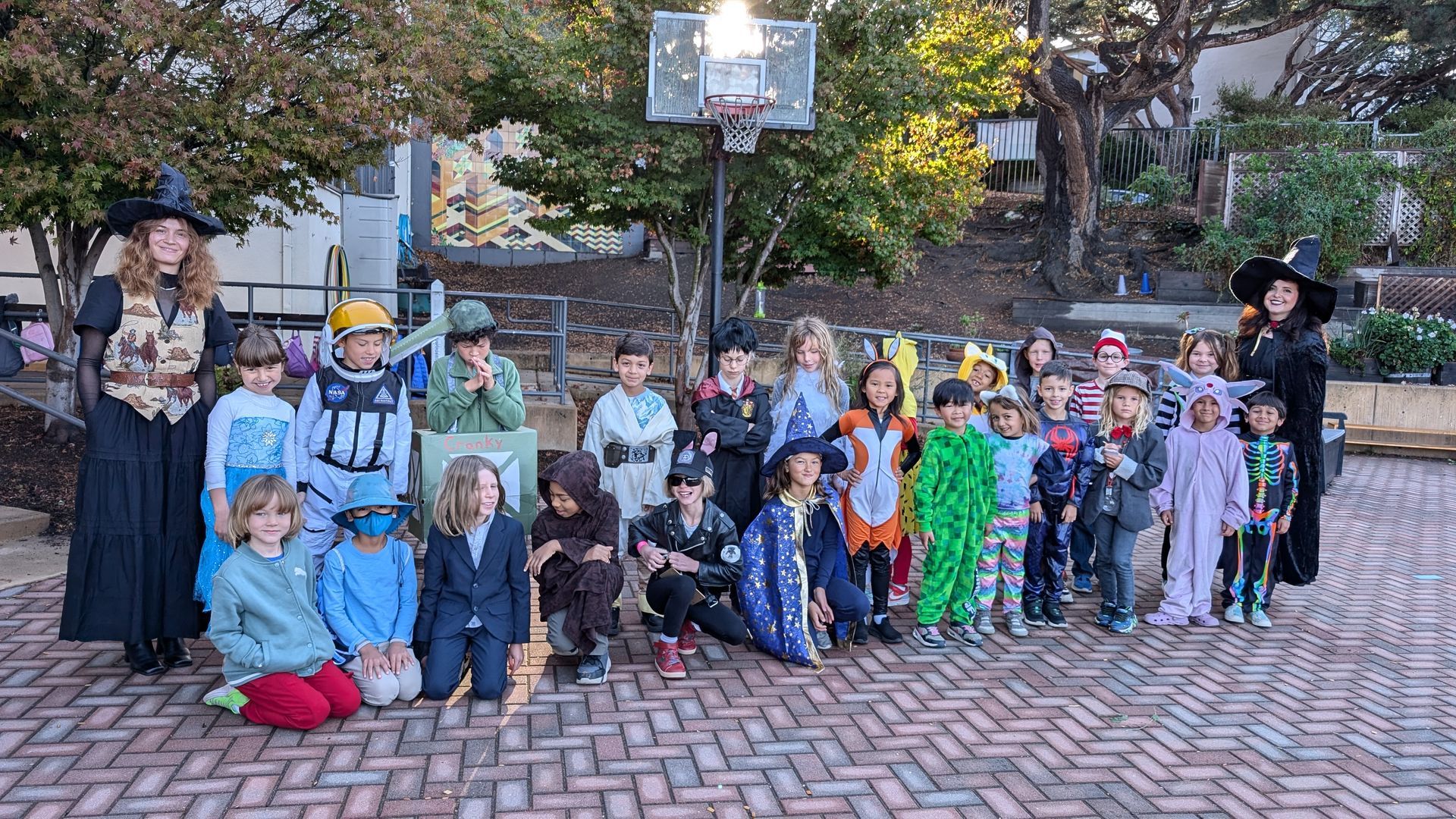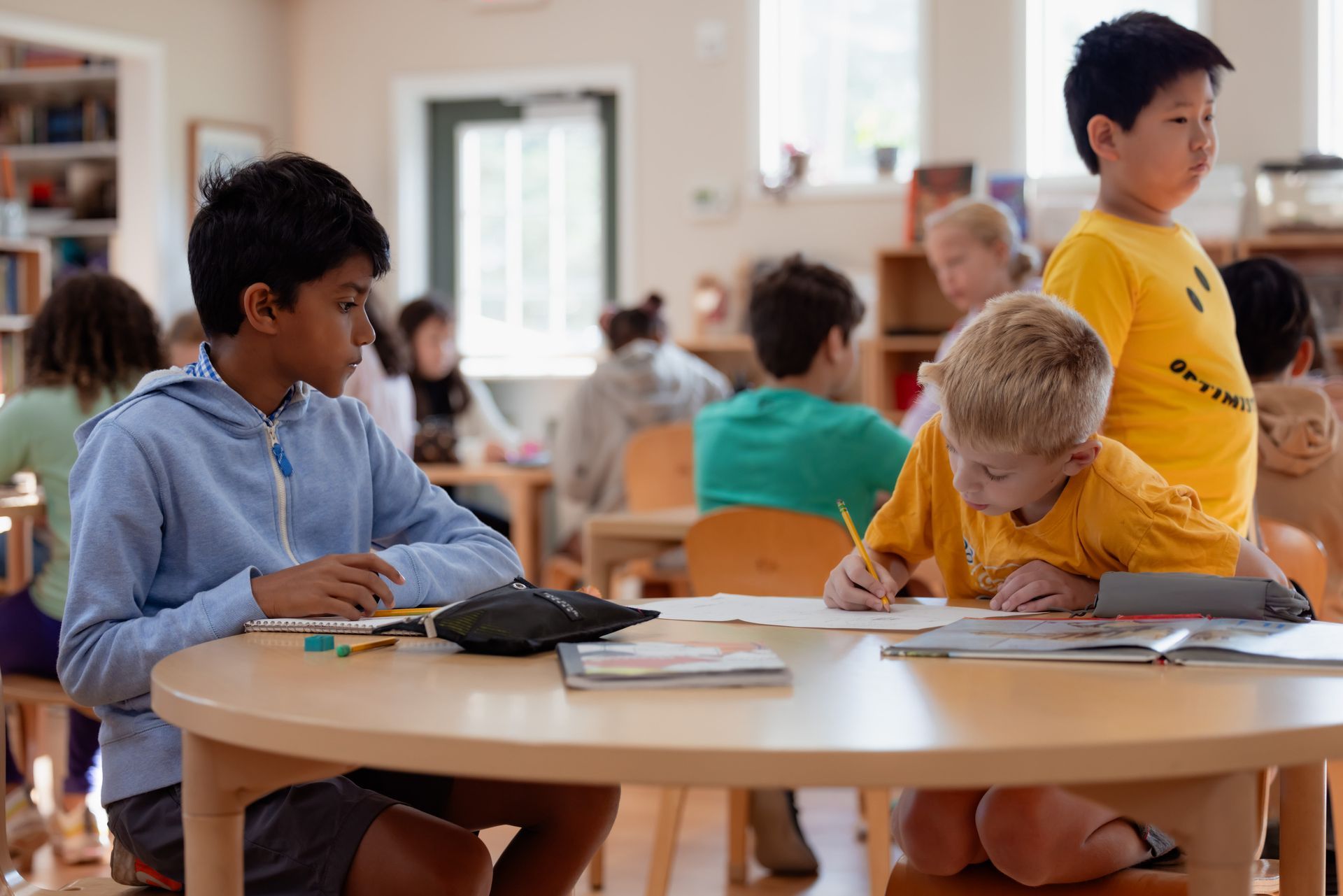Montessori 101
Key Concepts Unique to Montessori
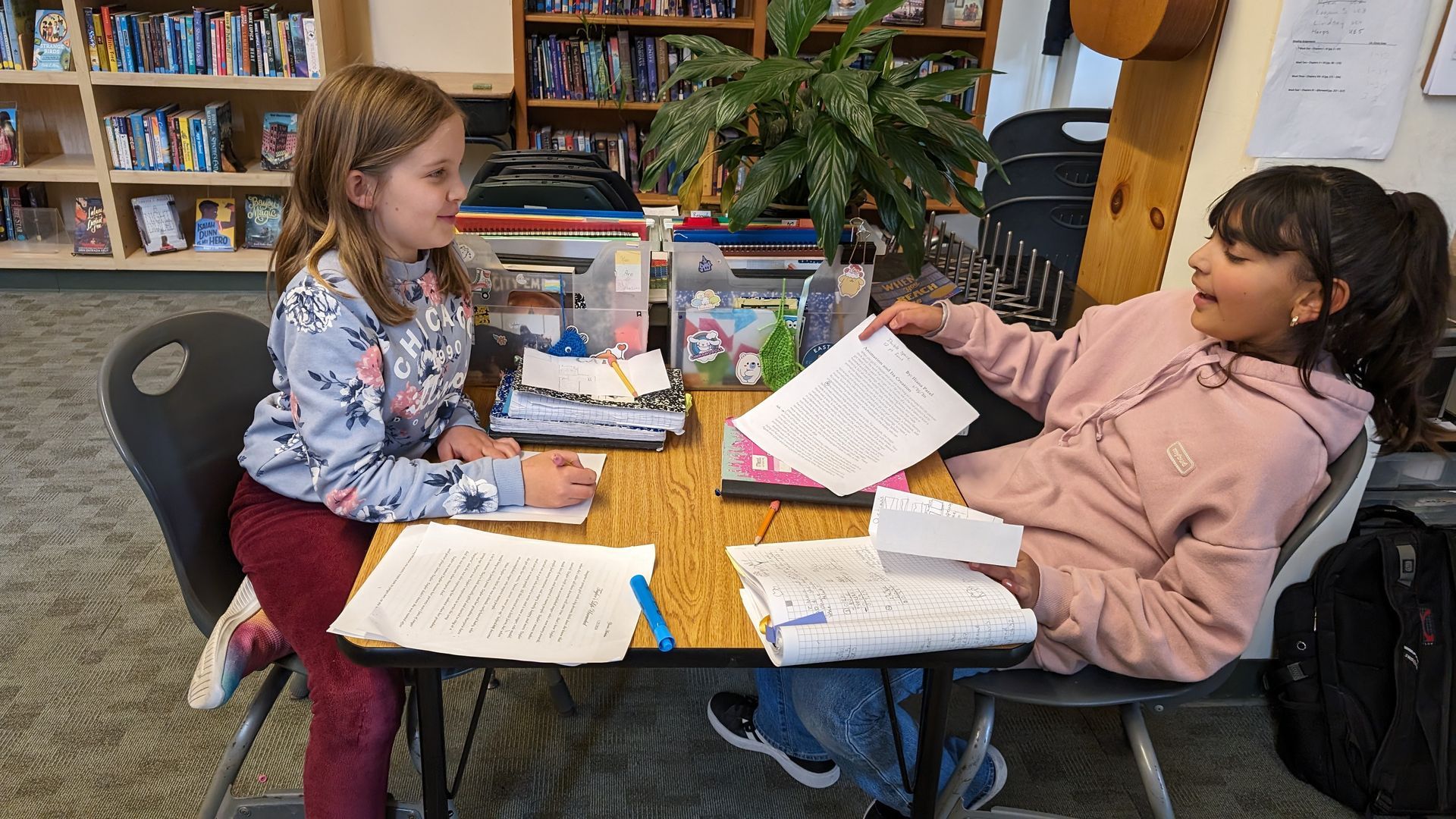
As today is the first day of school, we thought it would be helpful to review some key elements of Montessori education and how what we do supports children’s development.
The Montessori method focuses on children’s important process of constructing themselves into the amazing humans they are becoming. Respect for this process of self-construction, along with a prepared environment that supports the development of self-discipline and freedom within limits, forms an entire system wherein children develop independence, creativity, character, awareness of their own learning style, and skills for self-advocacy.
The Prepared Environment
Dr. Maria Montessori pioneered this understanding of the effect of the environment on human development. In Montessori prepared environments, children benefit from carefully designed spaces that meet their developmental needs at each stage of their lives. The materials in the classrooms offer young people keys to their development. In addition to the beautiful physical environments in Montessori, the prepared environment includes a community of children and trained adults.
The Montessori Guide
The Montessori guide needs comprehensive training and a new way of thinking to focus on individualized instruction. An integral part of the Montessori approach is that the guide must respect each child’s process of self-construction and provide opportunities to help children develop their potential. An extended relationship over time in a multi-age classroom enhances the guide’s ability to be effective in this role.
Multi-Age Groupings
While every child works at their own level, younger children learn through the observation of older children and older children reinforce their own learning by helping younger children. Older children also have opportunities to develop leadership skills while serving as role models. Our communities emphasize and encourage cooperation and social responsibility. As children develop social and academic relationships with others of various ages, a strong community develops. The multi-age group allows for natural socialization far beyond what is found in single year classrooms.
The Children’s House (Kindergarten Bridge at EBM)
Designed for children two and a half to six years old, our primary program (Kindergarten Bridge for EBM, which begins just after 4 years old) nurtures children’s individual development while offering them an experiential understanding of the value of interdependence. The classroom community also provides a carefully curated array of choices for individual activities that aid children’s work of self-construction.
The Montessori Guide helps children develop their ability to choose freely, sustain focused and concentrated attention, think clearly and constructively, resolve conflicts peacefully, and express themselves through language and the arts.
Areas of activity at the Children’s House level include practical life, sensorial organization, language, mathematics, and cultural subjects. The extensive sets of Montessori materials in each of these areas are designed to appeal to children's deep interest and inspire repeated activity.
The Elementary Program (Lower Elementary and Upper Elementary)
The Montessori philosophy continues in elementary and provides an unparalleled opportunity for growth in this new period of life. Children of this age have immense powers of imagination and creativity and are trying to understand themselves as social beings. The elementary environment provides an appropriate balance of freedom and responsibility and an expansive curriculum to support children’s curiosity and problem-solving.
The curriculum expands the sense of order that was nourished in the early childhood environment to study the order of the universe. Lessons rotate between geology, botany, history, language, math, and geometry. One of the goals of the program is to inspire children to explore ideas and interconnections, while also developing an understanding of their individual learning styles, needs, and goals. The Montessori interdisciplinary approach to elementary education supports children as they view the world, and even the universe, with a continued and intense sense of wonder.
The Adolescent Program (Middle School at EBM)
This program provides opportunities for adolescents to gain self-knowledge, belong to an accepting community, and learn to be adaptable while empowering them with academic competence and a vision for their own future. In all academic subjects, students do personal and group work integrated by overarching themes. The focus is on asking large questions, researching, interpreting, and connecting all of the disciplines.
Adolescent students apply and integrate all subjects through hands-on work that is connected to their greater community. They engage in elements of work on the land as an economic enterprise through the care of plants and animals, the maintenance of simple machines, and the understanding of land use. They also participate in local internships, class businesses, and community service. Because creative and physical expression is key during this stage of development, we offer adolescents multiple ways to explore different forms of self-expression. The adolescent program is designed to usher healthy, self-confident, well-prepared young adolescents into the next phase of their development.
A Strong Foundation
Our mission is to prepare children for life. All children are naturally curious and love to learn. We support this innate drive by providing environments that meet children’s developmental needs, creating a staff of loving and well-prepared adults, and building a community of families that actively support this mission. We celebrate each child’s individuality and help them discover how they can best contribute to our world and culture. This unique model offers children an incredible gift of independent thinking, self-assurance, inner discipline, and a love of learning. Schedule a tour to learn more!

